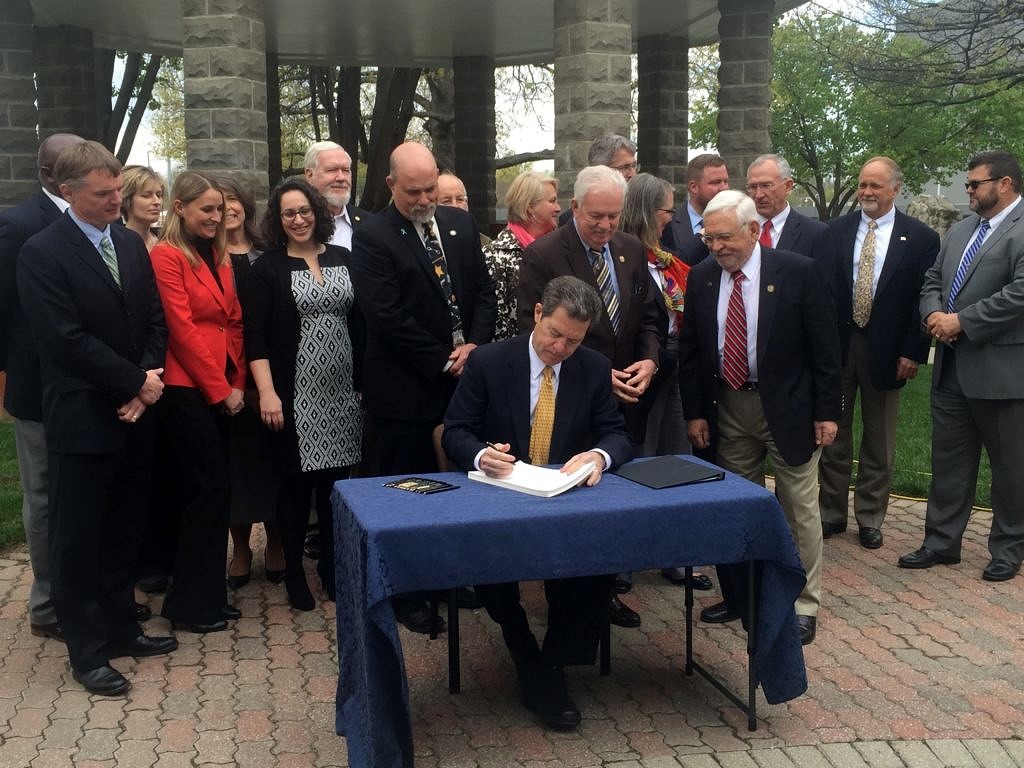
Setting aside partisanship and a fiscal crisis, the Kansas legislature, on March 24, 2016, passed sweeping reforms to the state’s juvenile justice system that will reduce by 60% the number of youth placed out of home.
Assisted by the Crime and Justice Institute (CJI) and The Pew Charitable Trusts, Kansas has shifted its focus from removing youth from their communities to empowering courts, treatment providers and communities to keep youth in their homes and expand the services that reduce recidivism and improve outcomes.
Surrounded by the state’s political and judicial leadership and members of the CJI and Pew team, Governor Sam Brownback signed the legislation into law on April 11, 2016. This legislation will “reduce recidivism, keep families strong and guide our youth toward a better path” Governor Brownback said.
The 11-month examination of Kansas’ juvenile justice system began with a request signed by Governor Brownback, legislative leadership, and Chief Justice Nuss to The Pew Charitable Trusts. CJI and Pew worked with the bipartisan, interbranch Juvenile Justice Workgroup. CJI’s Gabriella Priest and Pam Lachman provided technical assistance to the Workgroup, which was chaired by Senator Greg Smith and Representative John Rubin, and included 15 other state stakeholders representing all parts of the juvenile justice system.
The Workgroup studied the state’s juvenile justice system and related data, and reviewed national research and evidence-based practices as it sought Kansas-specific solutions to the issues confronting the state. The Workgroup submitted a report and its recommendations to the Governor, legislative leadership, and the Chief Justice in November 2015. The recommendations were drafted into a comprehensive juvenile justice reform bill, known as SB 367, and after two months of legislative hearings the bill passed the House 118-5 and the Senate 40-0.
At the signing ceremony Senator Smith called the bill a “monumental” piece of legislation that focused on the root causes of juvenile crime. His co-chair on the Workgroup, Representative Rubin, stated “I also have no doubt that as a result of this legislation that youth offender recidivism will substantially decrease and make Kansas a safer and better place for all citizens.”
The bill is projected to reduce the juvenile out of home population by 60% over 5 years, and provide approximately $72 million in reinvestment dollars during that same timeframe with $2 million included in the FY17 budget to immediately expand evidence-based services in the community.